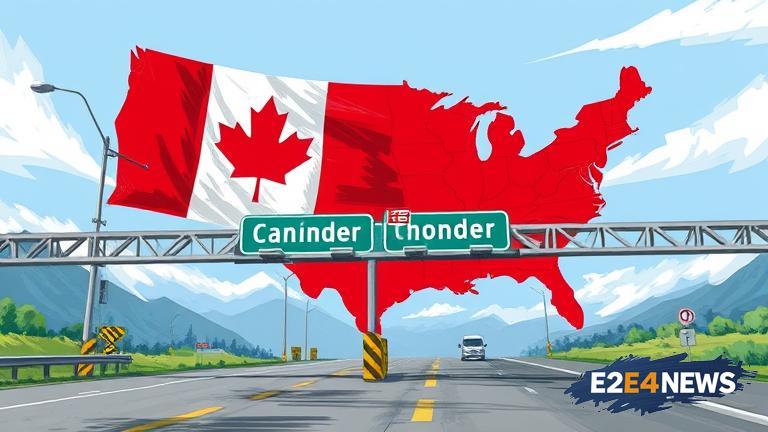The ongoing trade war between the US and Canada has resulted in a notable decline in border crossings, with many commercial and personal trips being cancelled or postponed. The situation has been exacerbated by the implementation of tariffs and other trade restrictions, which have increased costs and reduced demand for goods and services. As a result, border crossings in Washington and British Columbia have seen a significant decrease in traffic, with many businesses and individuals feeling the pinch. The trade war has also had a negative impact on the tourism industry, with many Canadians opting to stay home rather than travel to the US. The decline in border crossings has also had a ripple effect on the economy, with many businesses that rely on cross-border trade struggling to stay afloat. Despite efforts to negotiate a resolution to the trade war, the situation remains uncertain, and many are bracing for further declines in border crossings. The US and Canada have a long history of trade and commerce, and the current situation is a significant departure from the norm. The trade war has also raised concerns about the potential for further escalation, with some warning of a full-blown trade war between the two nations. The impact of the trade war is being felt across a wide range of industries, from agriculture to manufacturing, and many are calling for a swift resolution to the situation. In the meantime, businesses and individuals are being forced to adapt to the new reality, with many seeking out alternative markets and suppliers. The decline in border crossings is also having a negative impact on the environment, with many trucks and other vehicles being forced to take longer routes, resulting in increased emissions and pollution. The trade war has also raised concerns about the potential for job losses, with many businesses relying on cross-border trade to stay afloat. As the situation continues to unfold, many are watching with bated breath, hoping for a swift resolution to the trade war and a return to normal trade relations between the US and Canada. The US and Canada have a strong history of cooperation and trade, and many are hopeful that a resolution can be found that benefits both nations. In the short term, however, the decline in border crossings is likely to continue, with many businesses and individuals feeling the effects of the trade war. The situation is a complex one, with many different factors at play, and a resolution will likely require careful negotiation and compromise from both sides. As the trade war continues to escalate, many are bracing for further declines in border crossings and a potentially long and difficult road to recovery.
